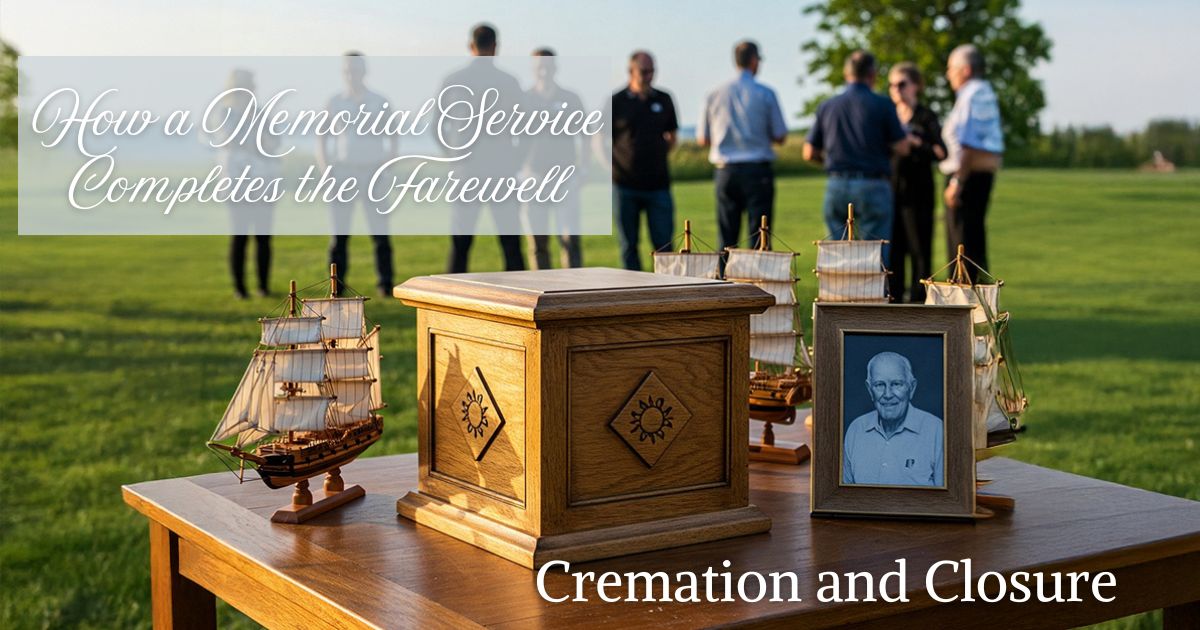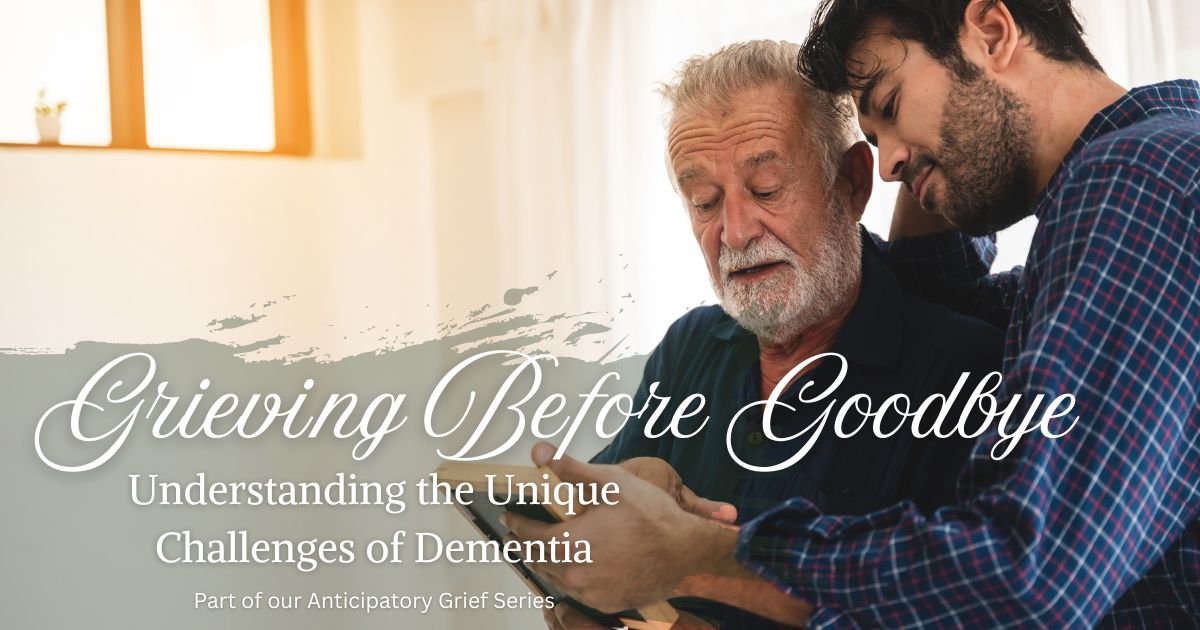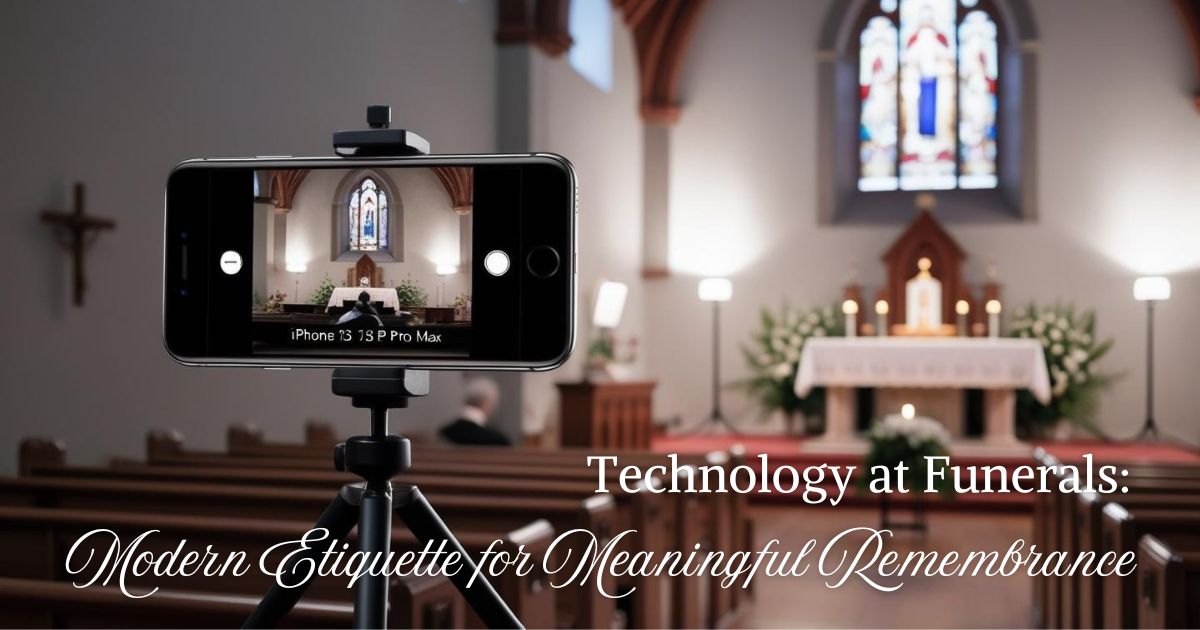
Choosing cremation for a loved one is a decision frequently made with careful consideration, taking into account everything from personal wishes and environmental impact to practical logistics. It's a respectful and increasingly common method for the final disposition of physical remains, offering a sense of finality in that regard. Yet, the human experience of loss is a complex tapestry woven with emotional and social threads that extend far beyond the physical.
While cremation addresses the practical aspect of the body's disposition, the profound and essential need for closure among those left behind is most fully met through a memorial service. This gathering doesn't just supplement cremation; it acts as a vital, necessary capstone, importantly completing the farewell in a way that the physical process alone cannot.
The concept of "closure" in grief is often misunderstood. It's not about forgetting the person or reaching a point where the pain of their absence vanishes entirely. Instead, it signifies the crucial process of acknowledging the irreversible reality of the death, integrating this profound loss into one's life narrative, and finding a way to move forward with a sense of acceptance while continuing to cherish the memories. It's about the heart and mind aligning with the reality that the physical presence is gone and transitioning to a new form of connection based on memory and legacy.
Cremation, while a definitive and final act concerning the physical body, can sometimes feel abstract or even anticlimactic without a subsequent ceremony. The body is gone, and without a focal point for communal grief and remembrance, the emotional and social processing of the death can be left incomplete.
This is precisely where a memorial service becomes SO important. It provides a concrete, shared experience that universally marks the end of a physical life and facilitates the necessary transition for the living into a new phase of life without the physical presence of their loved one.
Here's why a memorial service is SO important for completing the farewell after cremation:
- It Provides a Tangible Point of Acknowledgment: In a world that quickly moves on, a memorial service carves out dedicated time and space to collectively pause and acknowledge the reality of the death. This public or semi-public recognition is vital for the human psyche in beginning to process a significant loss.
- It Facilitates Shared Grief and Support: Grief can be incredibly isolating. A memorial service brings together the community of people whose lives were touched by the deceased. Sharing stories, tears, and even laughter in a supportive environment validates individual grief and provides a powerful sense of not being alone. This communal support is a cornerstone of healing.
- It Offers a Platform for Honoring a Life: A memorial service is a dedicated opportunity to celebrate the unique personality, passions, accomplishments, and impact of the person who has passed. Through eulogies, shared memories, music, and visual tributes, their life is honored and remembered in a way that reinforces their value and legacy.
- It Serves as a Necessary Ritual for Transition: Across cultures and throughout history, rituals have been essential for navigating major life changes, including death. A memorial service provides a ritualistic framework for saying goodbye, offering structure and meaning during a chaotic emotional time. It helps individuals and the community transition from life with the person to life without their physical presence.
- It Creates a Sense of Finality and Completion: While cremation is a final act for the physical body, a memorial service provides the emotional and social finality needed for closure. It's a designated time to collectively release the physical presence and embrace the continuation of the relationship through memory and love.
- It Prevents Future Regret: Many individuals who skip a memorial service after cremation later express deep regret. They miss the opportunity for a shared farewell, the communal support, and the formal acknowledgment of their loved one's life. Holding a service now, even when difficult, is an investment in preventing that painful "what if" later on.
Gathering with others who share the loss creates a collective acknowledgment that powerfully aids in processing the reality of the absence. In the supportive space of a memorial service, grief is witnessed, validated, and shared. Stories are recounted, often illuminating different facets of the deceased's personality and the impact they had on various lives.
This collective act of remembrance reinforces the reality of the loss in a way that individual grieving cannot. It moves the experience from an isolated internal struggle to a shared journey, reminding those mourning that they are not alone in their pain.
Without a memorial service, the farewell can feel unfinished, leaving a lingering sense of unresolvedness that can prolong grief and make it harder to move forward. This can manifest as persistent sadness, difficulty accepting the death, and a feeling that the importance of the loved one's life was not fully recognized or celebrated by the community.
The memorial service provides that crucial punctuation mark, a formal and supported opportunity to complete the emotional and social aspects of saying goodbye. It allows those grieving to take a significant step towards finding peace and integrating the loss into their lives, ensuring that while cremation is the physical disposition, the memorial service is the vital and SO important completion of the heartfelt farewell.


.png)


